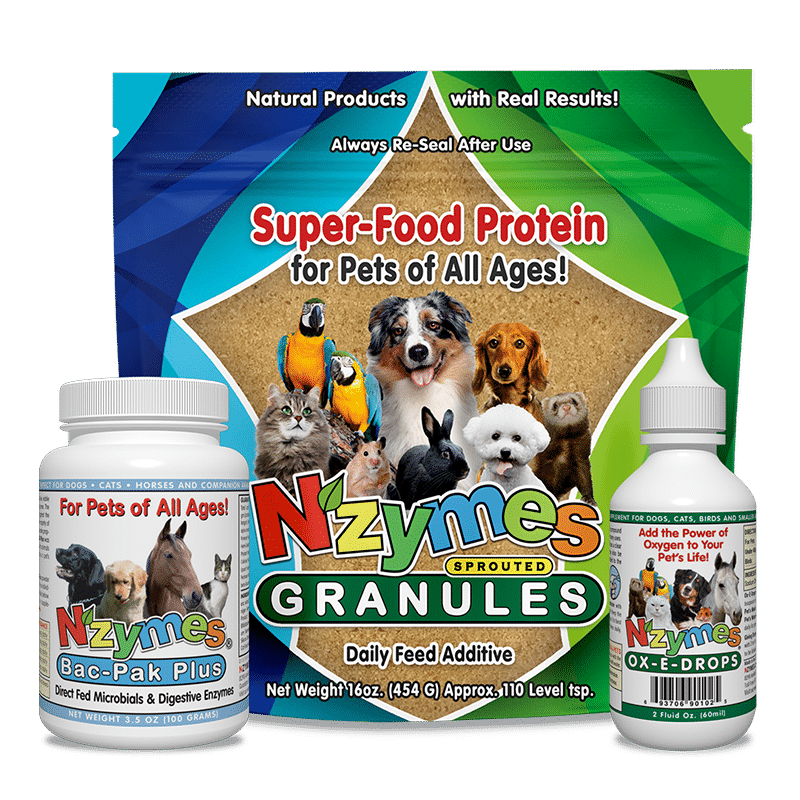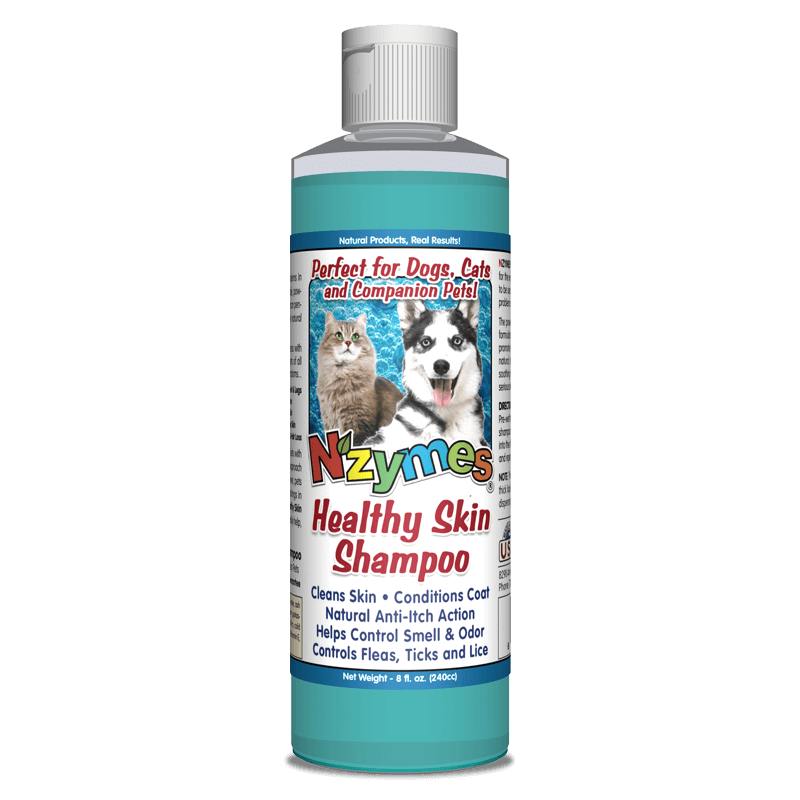
Help for a Stinky Problem with Dogs
Gas in dogs can really be a stinker of an issue to deal with. We love our pets… but, at times their flatulence can really mess up the ambiance of our home (or even worse, the vehicle).
Though there may be times when an illness is at the heart of this issue, gas in dogs is likely the results from either poor quality diets, digestive disorders, or a combination of both. Here at Nzymes, we must always be recommending premium quality pet foods since we are constantly dealing with the negative effects of the poorer quality big-name-brand foods that are so common on the shelves of all the larger discount stores and grocery chains.
Unfortunately, most of the big-name brands available today, consist highly of corn, wheat, or their derivatives, and are lacking in quality meat protein. In addition, they are laden with preservatives, additives, coloring, poor mineral content and by-products. In short, the modern pet food industry is a repository for remnants of waste products left over from the Human food industry. It is an Industry of convenience, whose focus is on finding a way to profit from waste material. Is this the philosophy you want guiding the providers your pet’s nutritional intake? For a better choice, please see our list of Recommended Foods.
The truth is, ALL processed pet foods, regardless of quality, have their enzymes destroyed through the heat of processing.This is why it is so important to supplement your pet with a Dietary Enzyme product like our Antioxidant Treats for Pets or Granules, to aid with your pet’s digestive processes, and other critical metabolic functions. Diets that are void of enzymes give rise to incidents of Gas and other digestive disruptions.
For optimum digestive health, include Bac-Pak Plus in your pet’s daily diet. Both digestive enzymes and direct fed microbial’s (probiotics) are provided to the daily diet by Bac-Pak Plus. For mere pennies per day, you can improve your pet’s digestion and help safeguard his digestive tract with billions of friendly bacterial flora.


